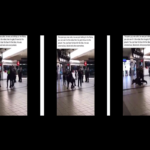A Guide to NSW Speeding Offences

Speeding is a common traffic offence in NSW.
Speeding offences can be detected by roadside cameras, police officers in their vehicles, and even from the air.
The penalties for breaking the posted speed limit on NSW roads can range from fines and demerit points, to licence suspension, or disqualification from driving.
There are a number of different speeding offences in NSW, which vary in severity depending on how fast the vehicle was travelling, and the size and type of the vehicle.
Here is a brief guide to the main NSW speeding offences.
Serious speeding offences
While the majority of speeding offences are generally considered minor, there are a few exceptions that attract harsher penalties than a fine.
If you are caught driving between 30 and 45 km/h over the speed limit, you are liable to face an automatic suspension from driving for three months.
For speeding offences where you are caught driving at a speed that exceeds the limit by 45 km/h or more, you will be liable for six months suspension.
If you are pulled over for speeding by a police officer, your licence can be confiscated on the spot.
In addition to being suspended, you will also accrue demerit points, which can contribute to future suspensions or make you appear worse if you come before a magistrate for an appeal against a penalty notice or for a major traffic offence such as drink driving, reckless or dangerous driving, or driving under the influence.
When a penalty notice is issued
If you are caught speeding by a fixed or mobile camera, or police officer, and you are issued with a penalty notice, you are liable for fines and demerit points.
The severity of both depends on how fast you were driving, and whether you were driving a light vehicle, a mid-range truck, or a heavy vehicle or coach.
There are additional penalties for speeding in a school zone.
Fines range from $105 to $3,543, and the number of demerit points drivers lose starts at one point for driving 10 km/h or less over the speed limit, and rises to seven points for speeding in a school zone at more than 45 km/h over the limit.
How do I appeal a speeding charge or penalty notice?
If you receive notification in the mail that you were caught speeding, and you don’t agree that you were going over the legal limit, you can appeal the ticket.
Traffic cameras and police radar are subject to technical constraints, and the proficiency of the person using the equipment and false results or faulty readings do happen.
Appealing a speeding ticket generally means preparing a defence and going to court to have the matter dealt with.
If you want to appeal a penalty notice, it is a good idea to speak to an experienced traffic lawyer first.
An experienced, specialist traffic lawyer will be able to advise you of your options and the best way forward, help you to prepare for your driver licence appeal against speeding and fight for the optimal outcome – whether that may be having the allegations dropped or thrown out of court (if you wish to contest the ticket) or having your licence suspension revoked or reduced if you wish to accept the allegations.






